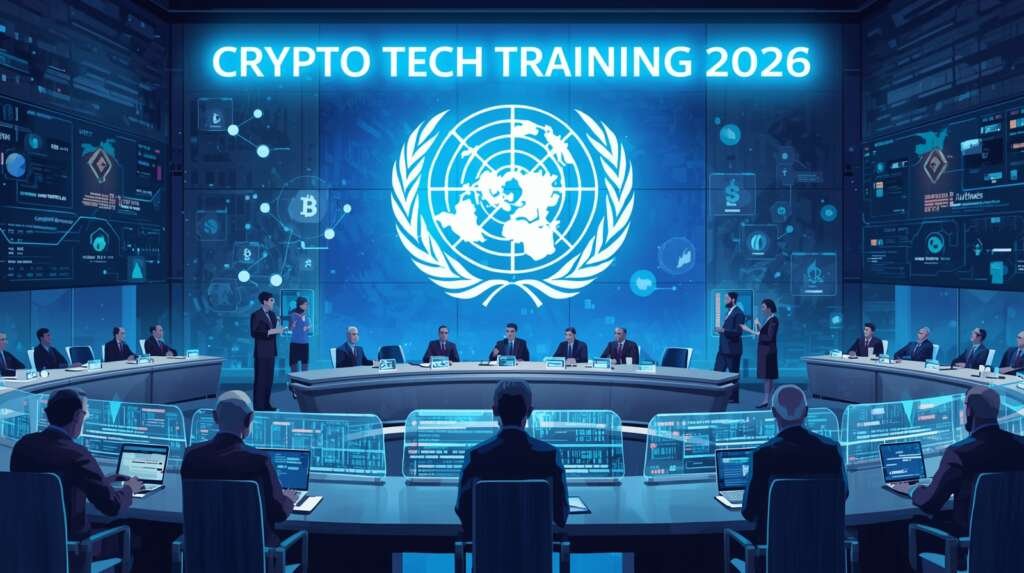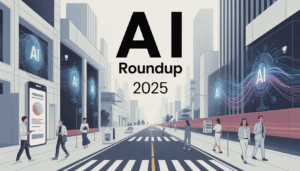In a significant step towards enhancing the adoption of frontier technology into public governance, the United Nations Development Programme (UNDP) is partnering with the Exponential Science Foundation to launch the Government Blockchain Academy in 2026. The program focuses on enabling governments to advance beyond pilot projects on the path to fully institutionalized digital transformation in five areas of importance, including: digital identity, transparent governance, climate finance, and inclusive digital payments.
About The Academy and Its Objectives
The Academy will provide specialized education and implementation support to help governments implement transformative changes through the use of blockchain, artificial intelligence (AI), and other frontier technologies.
The goal of the Academy is to enhance implementations beyond experiments. Rather than governments testing small scale blockchain or AI projects, the Academy will help governments make the shift to implementing solutions that allow for scale, resilience, and alignment to their national development priorities.
The programme will use different modes of delivery, such as online modules, workshops, forums of leadership, and advisory/incubator support.
Five Pillars of Focus
As described in the PR news release from the UNDP and Exponential Science Foundation, the Academy will focus on helping governments take on specific initiatives through five pillars:
- Inclusive Digital Finance – Increasing access to financial services through secure digital payment solutions and financial infrastructure.
- Transparent Governance – Using blockchain to provide tamper resistant record keeping and digital record keeping systems to promote integrity and decrease corruption.
- Supply Chain Integrity – Ensuring traceability and accountability in public procurement, logistics and supply network systems.
- Climate Resilience – Reporting climate finance flows, carbon credits and other environmental metrics through smart contract, token and other technology strategies.
- Digital Identity Solutions – Enabling individuals to have verifiable digital credentials that provides access to public services in a reliable manner.
Timelines, Partners & Rollout
Kickoff and Preparation: While curriculum development, stakeholder engagements, and foundational work are already underway in 2025, the first full country programs will launch in 2026.
Launch: The formal launch will be held at the TOKEN2049 event in Singapore on October 1-2, 2025. We will plan to host an industry round table at the TOKEN2049 event to convene infrastructure service providers, protocol developers, and governments under the new framework.
Key Partnership: Exponential Science Foundation is the co-lead partner providing technical acumen, policy consultations, and support for the implementation phase.
UNDP’s Prior Blockchain & Innovation Efforts
To better understand the importance of the Academy, it is beneficial to consider what has already been accomplished by UNDP in relation to blockchain education and experimentation.
Algorand Blockchain Academy: At the end of 2023, UNDP worked with the Algorand Foundation to provide blockchain education to its staff which is 22,000 in personnel across over 170 countries. This past programme had three modules that addressed issues related to financial inclusion, supply chain transparency, digital identity, etc. In fact, it served as a model of what large-scale blockchain education could look like.
Global Blockchain Academy and Community of Practice: UNDP has expanded and scaled internal blockchain education programs globally, creating communities among all personnel, volunteers, and affiliates to share learning, ideas to pilot and projects to scale.
SDG Blockchain Accelerator: In addition to the educational programs, UNDP created accelerator initiatives that help to scale real-world blockchain projects aligned to the Sustainable Development Goals (SDGs) to help with prototyping, mentoring, funding, and partnerships.
Why Does It Matter
Here are 4 top reasons why the Government Blockchain Academy is more than just “another training”:
Bridging the Hype to Implementation Gap: Many countries have experimented with blockchain or AI in small pilot programs, with limited ability to scale them up or integrate them into systems in a sustainable way. The Academy seeks to provide the frameworks, legal and policy brainstorming and the technical experience to help bridge that gap.
Transparency, Trust and Anti-Corruption: In many places, corruption and lack of trust in public systems remain unresolved barriers to being able to develop. Immutable record keeping, traceability of public procurement, and verified digital credentials can restore trust and improve governance.
Inclusive Access and Identity: Digital identity solutions are a cornerstone for people to access government services, banking and social programs. This could be transformative for areas or groups that do not have a stable documentation system.
Transparent Climate Action: Managing climate finance by tracking where the funds go, verifying carbon credits and accountability is still very hard. Blockchain-backed solutions can improve visibility and trust in environmental commitments.
Things to Look Out For in the Coming Year
Some things to look out for include:
Which countries will be a part of the first launch wave in 2026 and what will their focus areas be (identity, procurement, climate finance, etc.)
The Academy’s work to customize its program for the needs of different regions, since what works in one country may not easily translate to another.
The development of legal/regulatory frameworks in the countries that are participating, especially around data privacy, smart contracts and digital identity.
Examples of success in early pilot projects- are there case studies of early implementation that show a measurable impact (e.g. corruption reduction, financial inclusion, and faster service delivery)
The UNDP’s Government Blockchain Academy is in a unique position to shift the dial on public sector innovation. This is more than just a capacity-building opportunity, it is a political intervention aimed at transforming the way that governments deploy digital tools to uphold commitments to transparency, inclusion, and resilience. If it is done well, this could lead to transformative governance models, increased agency for sometimes marginalized communities, and swift action towards the SDGs.
But ambition is not enough. Success will depend on good legal design, solid partnerships, investment in infrastructures, and access to guarantee that the technological tools work for people, not for the system. The world will be watching as we approach 2026 to see if this initiative can deliver progress, rather than promise.




